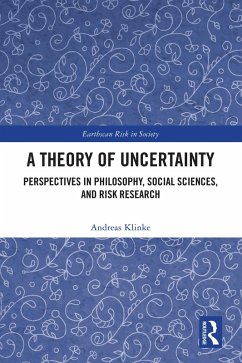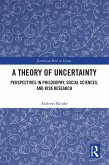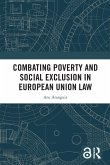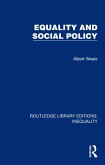Andreas Klinke
A Theory of Uncertainty (eBook, PDF)
Perspectives in Philosophy, Social Sciences, and Risk Research
42,95 €
42,95 €
inkl. MwSt.
Sofort per Download lieferbar

21 °P sammeln
42,95 €
Als Download kaufen

42,95 €
inkl. MwSt.
Sofort per Download lieferbar

21 °P sammeln
Jetzt verschenken
Alle Infos zum eBook verschenken
42,95 €
inkl. MwSt.
Sofort per Download lieferbar
Alle Infos zum eBook verschenken

21 °P sammeln
Andreas Klinke
A Theory of Uncertainty (eBook, PDF)
Perspectives in Philosophy, Social Sciences, and Risk Research
- Format: PDF
- Merkliste
- Auf die Merkliste
- Bewerten Bewerten
- Teilen
- Produkt teilen
- Produkterinnerung
- Produkterinnerung

Bitte loggen Sie sich zunächst in Ihr Kundenkonto ein oder registrieren Sie sich bei
bücher.de, um das eBook-Abo tolino select nutzen zu können.
Hier können Sie sich einloggen
Hier können Sie sich einloggen
Sie sind bereits eingeloggt. Klicken Sie auf 2. tolino select Abo, um fortzufahren.

Bitte loggen Sie sich zunächst in Ihr Kundenkonto ein oder registrieren Sie sich bei bücher.de, um das eBook-Abo tolino select nutzen zu können.
Using sources from classical to modern that broach the phenomenon of uncertainty and its relation to risk, this book creates a novel approach to the recognized but theoretically often unattended issue of uncertainty.
- Geräte: PC
- mit Kopierschutz
- eBook Hilfe
Andere Kunden interessierten sich auch für
![A Theory of Uncertainty (eBook, ePUB) A Theory of Uncertainty (eBook, ePUB)]() Andreas KlinkeA Theory of Uncertainty (eBook, ePUB)42,95 €
Andreas KlinkeA Theory of Uncertainty (eBook, ePUB)42,95 €![Genomics and the Reimagining of Personalized Medicine (eBook, PDF) Genomics and the Reimagining of Personalized Medicine (eBook, PDF)]() Richard TuttonGenomics and the Reimagining of Personalized Medicine (eBook, PDF)44,95 €
Richard TuttonGenomics and the Reimagining of Personalized Medicine (eBook, PDF)44,95 €![Supported Housing (eBook, PDF) Supported Housing (eBook, PDF)]() Yoric Irving-ClarkeSupported Housing (eBook, PDF)23,95 €
Yoric Irving-ClarkeSupported Housing (eBook, PDF)23,95 €![Risk (eBook, PDF) Risk (eBook, PDF)]() Deborah LuptonRisk (eBook, PDF)23,95 €
Deborah LuptonRisk (eBook, PDF)23,95 €![Wind Power and Power Politics (eBook, PDF) Wind Power and Power Politics (eBook, PDF)]() Wind Power and Power Politics (eBook, PDF)45,95 €
Wind Power and Power Politics (eBook, PDF)45,95 €![Combating Poverty and Social Exclusion in European Union Law (eBook, PDF) Combating Poverty and Social Exclusion in European Union Law (eBook, PDF)]() Ane AranguizCombating Poverty and Social Exclusion in European Union Law (eBook, PDF)34,95 €
Ane AranguizCombating Poverty and Social Exclusion in European Union Law (eBook, PDF)34,95 €![Equality and Social Policy (eBook, PDF) Equality and Social Policy (eBook, PDF)]() Albert WealeEquality and Social Policy (eBook, PDF)29,95 €
Albert WealeEquality and Social Policy (eBook, PDF)29,95 €-
-
-
Using sources from classical to modern that broach the phenomenon of uncertainty and its relation to risk, this book creates a novel approach to the recognized but theoretically often unattended issue of uncertainty.
Dieser Download kann aus rechtlichen Gründen nur mit Rechnungsadresse in A, B, BG, CY, CZ, D, DK, EW, E, FIN, F, GR, HR, H, IRL, I, LT, L, LR, M, NL, PL, P, R, S, SLO, SK ausgeliefert werden.
Produktdetails
- Produktdetails
- Verlag: Taylor & Francis eBooks
- Seitenzahl: 270
- Erscheinungstermin: 2. August 2024
- Englisch
- ISBN-13: 9781040102701
- Artikelnr.: 70887077
- Verlag: Taylor & Francis eBooks
- Seitenzahl: 270
- Erscheinungstermin: 2. August 2024
- Englisch
- ISBN-13: 9781040102701
- Artikelnr.: 70887077
- Herstellerkennzeichnung Die Herstellerinformationen sind derzeit nicht verfügbar.
Andreas Klinke is a political scientist and sociologist. He is Full Professor and the Director of the Environmental Policy Institute (EPI) at Memorial University of Newfoundland in Canada. In addition, he is an external member of the Center for International Development and Environmental Research at the University of Giessen in Germany. Prior to that, he worked at the ETH-domain in Zurich, Switzerland, at King's College in London, as well as at the University of Stuttgart, the Center of Technology Assessment in Stuttgart, and at the German Advisory Council on Global Change (WBGU) in Germany.
Introduction
Chapter 1
Entering Terra Incognita - A Metaphysical Approach
1.1 Natural and Social Guises of Uncertainty
1.2 Immanence and Genericity
1.3 The Fundamental Premise of a Theory of Uncertainty
1.3.1 At the Intersection of Philosophical and Social Science Disciplines
1.3.2 Determinism versus Nondeterminism
1.3.3 The Interpretive Structure and Dependence of Uncertainty
Chapter 2
Ontological Uncertainty - World and Social Being in Disarray
2.1 Constitutive and Differential Potential
2.2 Holding Sway over Social Being
2.3 Freedom and Self-Determination
2.4 Cosmopolitan Ontology
Excursus I
Homo Homini Lupus Est - War, Terrorism, and Collective Violence
Chapter 3
Epistemological Uncertainty - What We Know and Don't Know about Non-Knowing
3.1 Evidentiality and Reliability
3.2 Knowable and Unknowable
3.3 Techno-Scientific Paradigm of Uncertainty
3.4 Discursive Epistemology
3.4.1 Social Epistemology and Non-Knowing
3.4.2 Epistemology of Epistemological Uncertainty
3.5 Collective Agents of Knowledge and Epistemic Communities
3.5.1 The Becoming Common of Distributed Cognitive Labor
3.5.2 Relativism, Relative Truth, and Disagreement
3.5.3 Influence of Power
Excursus II
The Orwellian "Doublethink" of Post-Facticity
Chapter 4
Linguistic-Communicative Uncertainty - The Twilight Zone of Language, Communication, and Discourse
4.1 Linguistic Turns: Becoming Aware of Linguistic-Communicative Uncertainty
4.2 Obscurity in Semantics: Meaning, Sense, and Reference
4.2.1 Semantic Analysis
4.2.2 Functional Validity Claims (in Semantics)
4.3 Confusion through Linguistic Interpretation and Hermeneutical Conundrums
4.4 Imponderabilia of Discourse and Communicative Rationality
4.5 Anomalies of Linguistic-Communicative Uncertainty Revisited
4.5.1 Lexical Vagueness and Ambiguity of Terms and Phrases
4.5.2 Illogical Syntax and Compositionality
4.5.3 Unclear and Obscure Referencing
4.5.4 Delusive Contextualization
4.5.5 Inadequate Linguistic Attitude and Intentionality
4.5.6 Equivocal Interpretation
4.5.7 Discursive Imponderability
Excursus III
Speaking out of Turn - The Viral Linguistic Power of Social Media
Chapter 5
Teleological Uncertainty - Journey into an Uncertain Future
5.1 World in Process and Transition
5.1.1 Uncertainty in Process
5.1.2 The Coming About of Teleological Uncertainty
5.2 Art and Science of Prescience
5.2.1 Systematic Approaches to the Future
5.2.2 A Vein of Modalism, Abstractionism, and Possibilism
5.3 Logic of Teleological Uncertainty in Forward-Looking Constructions
5.3.1 Conjecturing Teleological Uncertainty and Contingent Future
5.3.2 Reasoning, Inference, and Plausibility
5.3.3 Multifarious Logic of Teleological Uncertainty
5.3.4 The Role of Intuition
5.3.5 Uncertain Encounters with Bifurcations, Tipping Points, and Points of No Return
Excursus IV
Ides of March - Rare Contretemps, Upheavals, and Radical Transformations
Chapter 6
Epilogue - Societal Domestication of Uncertainty
6.1 Philosophication and Scientification of Uncertainty
6.2 Rational Politicization of Uncertainty
6.3 Postnormal Democratization of Uncertainty
6.3.1 Mediatory Public Sphere
6.3.2 Epistemic Authority
6.3.3 Associational Authority
6.3.4 General Public Authority
6.3.5 Résumé
Bibliography
Index
Chapter 1
Entering Terra Incognita - A Metaphysical Approach
1.1 Natural and Social Guises of Uncertainty
1.2 Immanence and Genericity
1.3 The Fundamental Premise of a Theory of Uncertainty
1.3.1 At the Intersection of Philosophical and Social Science Disciplines
1.3.2 Determinism versus Nondeterminism
1.3.3 The Interpretive Structure and Dependence of Uncertainty
Chapter 2
Ontological Uncertainty - World and Social Being in Disarray
2.1 Constitutive and Differential Potential
2.2 Holding Sway over Social Being
2.3 Freedom and Self-Determination
2.4 Cosmopolitan Ontology
Excursus I
Homo Homini Lupus Est - War, Terrorism, and Collective Violence
Chapter 3
Epistemological Uncertainty - What We Know and Don't Know about Non-Knowing
3.1 Evidentiality and Reliability
3.2 Knowable and Unknowable
3.3 Techno-Scientific Paradigm of Uncertainty
3.4 Discursive Epistemology
3.4.1 Social Epistemology and Non-Knowing
3.4.2 Epistemology of Epistemological Uncertainty
3.5 Collective Agents of Knowledge and Epistemic Communities
3.5.1 The Becoming Common of Distributed Cognitive Labor
3.5.2 Relativism, Relative Truth, and Disagreement
3.5.3 Influence of Power
Excursus II
The Orwellian "Doublethink" of Post-Facticity
Chapter 4
Linguistic-Communicative Uncertainty - The Twilight Zone of Language, Communication, and Discourse
4.1 Linguistic Turns: Becoming Aware of Linguistic-Communicative Uncertainty
4.2 Obscurity in Semantics: Meaning, Sense, and Reference
4.2.1 Semantic Analysis
4.2.2 Functional Validity Claims (in Semantics)
4.3 Confusion through Linguistic Interpretation and Hermeneutical Conundrums
4.4 Imponderabilia of Discourse and Communicative Rationality
4.5 Anomalies of Linguistic-Communicative Uncertainty Revisited
4.5.1 Lexical Vagueness and Ambiguity of Terms and Phrases
4.5.2 Illogical Syntax and Compositionality
4.5.3 Unclear and Obscure Referencing
4.5.4 Delusive Contextualization
4.5.5 Inadequate Linguistic Attitude and Intentionality
4.5.6 Equivocal Interpretation
4.5.7 Discursive Imponderability
Excursus III
Speaking out of Turn - The Viral Linguistic Power of Social Media
Chapter 5
Teleological Uncertainty - Journey into an Uncertain Future
5.1 World in Process and Transition
5.1.1 Uncertainty in Process
5.1.2 The Coming About of Teleological Uncertainty
5.2 Art and Science of Prescience
5.2.1 Systematic Approaches to the Future
5.2.2 A Vein of Modalism, Abstractionism, and Possibilism
5.3 Logic of Teleological Uncertainty in Forward-Looking Constructions
5.3.1 Conjecturing Teleological Uncertainty and Contingent Future
5.3.2 Reasoning, Inference, and Plausibility
5.3.3 Multifarious Logic of Teleological Uncertainty
5.3.4 The Role of Intuition
5.3.5 Uncertain Encounters with Bifurcations, Tipping Points, and Points of No Return
Excursus IV
Ides of March - Rare Contretemps, Upheavals, and Radical Transformations
Chapter 6
Epilogue - Societal Domestication of Uncertainty
6.1 Philosophication and Scientification of Uncertainty
6.2 Rational Politicization of Uncertainty
6.3 Postnormal Democratization of Uncertainty
6.3.1 Mediatory Public Sphere
6.3.2 Epistemic Authority
6.3.3 Associational Authority
6.3.4 General Public Authority
6.3.5 Résumé
Bibliography
Index
Introduction
Chapter 1
Entering Terra Incognita - A Metaphysical Approach
1.1 Natural and Social Guises of Uncertainty
1.2 Immanence and Genericity
1.3 The Fundamental Premise of a Theory of Uncertainty
1.3.1 At the Intersection of Philosophical and Social Science Disciplines
1.3.2 Determinism versus Nondeterminism
1.3.3 The Interpretive Structure and Dependence of Uncertainty
Chapter 2
Ontological Uncertainty - World and Social Being in Disarray
2.1 Constitutive and Differential Potential
2.2 Holding Sway over Social Being
2.3 Freedom and Self-Determination
2.4 Cosmopolitan Ontology
Excursus I
Homo Homini Lupus Est - War, Terrorism, and Collective Violence
Chapter 3
Epistemological Uncertainty - What We Know and Don't Know about Non-Knowing
3.1 Evidentiality and Reliability
3.2 Knowable and Unknowable
3.3 Techno-Scientific Paradigm of Uncertainty
3.4 Discursive Epistemology
3.4.1 Social Epistemology and Non-Knowing
3.4.2 Epistemology of Epistemological Uncertainty
3.5 Collective Agents of Knowledge and Epistemic Communities
3.5.1 The Becoming Common of Distributed Cognitive Labor
3.5.2 Relativism, Relative Truth, and Disagreement
3.5.3 Influence of Power
Excursus II
The Orwellian "Doublethink" of Post-Facticity
Chapter 4
Linguistic-Communicative Uncertainty - The Twilight Zone of Language, Communication, and Discourse
4.1 Linguistic Turns: Becoming Aware of Linguistic-Communicative Uncertainty
4.2 Obscurity in Semantics: Meaning, Sense, and Reference
4.2.1 Semantic Analysis
4.2.2 Functional Validity Claims (in Semantics)
4.3 Confusion through Linguistic Interpretation and Hermeneutical Conundrums
4.4 Imponderabilia of Discourse and Communicative Rationality
4.5 Anomalies of Linguistic-Communicative Uncertainty Revisited
4.5.1 Lexical Vagueness and Ambiguity of Terms and Phrases
4.5.2 Illogical Syntax and Compositionality
4.5.3 Unclear and Obscure Referencing
4.5.4 Delusive Contextualization
4.5.5 Inadequate Linguistic Attitude and Intentionality
4.5.6 Equivocal Interpretation
4.5.7 Discursive Imponderability
Excursus III
Speaking out of Turn - The Viral Linguistic Power of Social Media
Chapter 5
Teleological Uncertainty - Journey into an Uncertain Future
5.1 World in Process and Transition
5.1.1 Uncertainty in Process
5.1.2 The Coming About of Teleological Uncertainty
5.2 Art and Science of Prescience
5.2.1 Systematic Approaches to the Future
5.2.2 A Vein of Modalism, Abstractionism, and Possibilism
5.3 Logic of Teleological Uncertainty in Forward-Looking Constructions
5.3.1 Conjecturing Teleological Uncertainty and Contingent Future
5.3.2 Reasoning, Inference, and Plausibility
5.3.3 Multifarious Logic of Teleological Uncertainty
5.3.4 The Role of Intuition
5.3.5 Uncertain Encounters with Bifurcations, Tipping Points, and Points of No Return
Excursus IV
Ides of March - Rare Contretemps, Upheavals, and Radical Transformations
Chapter 6
Epilogue - Societal Domestication of Uncertainty
6.1 Philosophication and Scientification of Uncertainty
6.2 Rational Politicization of Uncertainty
6.3 Postnormal Democratization of Uncertainty
6.3.1 Mediatory Public Sphere
6.3.2 Epistemic Authority
6.3.3 Associational Authority
6.3.4 General Public Authority
6.3.5 Résumé
Bibliography
Index
Chapter 1
Entering Terra Incognita - A Metaphysical Approach
1.1 Natural and Social Guises of Uncertainty
1.2 Immanence and Genericity
1.3 The Fundamental Premise of a Theory of Uncertainty
1.3.1 At the Intersection of Philosophical and Social Science Disciplines
1.3.2 Determinism versus Nondeterminism
1.3.3 The Interpretive Structure and Dependence of Uncertainty
Chapter 2
Ontological Uncertainty - World and Social Being in Disarray
2.1 Constitutive and Differential Potential
2.2 Holding Sway over Social Being
2.3 Freedom and Self-Determination
2.4 Cosmopolitan Ontology
Excursus I
Homo Homini Lupus Est - War, Terrorism, and Collective Violence
Chapter 3
Epistemological Uncertainty - What We Know and Don't Know about Non-Knowing
3.1 Evidentiality and Reliability
3.2 Knowable and Unknowable
3.3 Techno-Scientific Paradigm of Uncertainty
3.4 Discursive Epistemology
3.4.1 Social Epistemology and Non-Knowing
3.4.2 Epistemology of Epistemological Uncertainty
3.5 Collective Agents of Knowledge and Epistemic Communities
3.5.1 The Becoming Common of Distributed Cognitive Labor
3.5.2 Relativism, Relative Truth, and Disagreement
3.5.3 Influence of Power
Excursus II
The Orwellian "Doublethink" of Post-Facticity
Chapter 4
Linguistic-Communicative Uncertainty - The Twilight Zone of Language, Communication, and Discourse
4.1 Linguistic Turns: Becoming Aware of Linguistic-Communicative Uncertainty
4.2 Obscurity in Semantics: Meaning, Sense, and Reference
4.2.1 Semantic Analysis
4.2.2 Functional Validity Claims (in Semantics)
4.3 Confusion through Linguistic Interpretation and Hermeneutical Conundrums
4.4 Imponderabilia of Discourse and Communicative Rationality
4.5 Anomalies of Linguistic-Communicative Uncertainty Revisited
4.5.1 Lexical Vagueness and Ambiguity of Terms and Phrases
4.5.2 Illogical Syntax and Compositionality
4.5.3 Unclear and Obscure Referencing
4.5.4 Delusive Contextualization
4.5.5 Inadequate Linguistic Attitude and Intentionality
4.5.6 Equivocal Interpretation
4.5.7 Discursive Imponderability
Excursus III
Speaking out of Turn - The Viral Linguistic Power of Social Media
Chapter 5
Teleological Uncertainty - Journey into an Uncertain Future
5.1 World in Process and Transition
5.1.1 Uncertainty in Process
5.1.2 The Coming About of Teleological Uncertainty
5.2 Art and Science of Prescience
5.2.1 Systematic Approaches to the Future
5.2.2 A Vein of Modalism, Abstractionism, and Possibilism
5.3 Logic of Teleological Uncertainty in Forward-Looking Constructions
5.3.1 Conjecturing Teleological Uncertainty and Contingent Future
5.3.2 Reasoning, Inference, and Plausibility
5.3.3 Multifarious Logic of Teleological Uncertainty
5.3.4 The Role of Intuition
5.3.5 Uncertain Encounters with Bifurcations, Tipping Points, and Points of No Return
Excursus IV
Ides of March - Rare Contretemps, Upheavals, and Radical Transformations
Chapter 6
Epilogue - Societal Domestication of Uncertainty
6.1 Philosophication and Scientification of Uncertainty
6.2 Rational Politicization of Uncertainty
6.3 Postnormal Democratization of Uncertainty
6.3.1 Mediatory Public Sphere
6.3.2 Epistemic Authority
6.3.3 Associational Authority
6.3.4 General Public Authority
6.3.5 Résumé
Bibliography
Index







